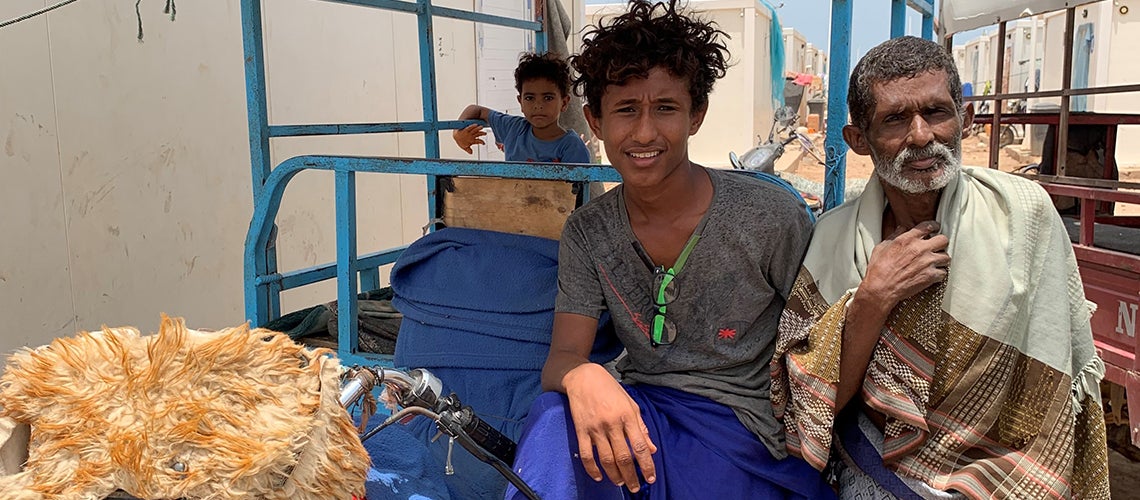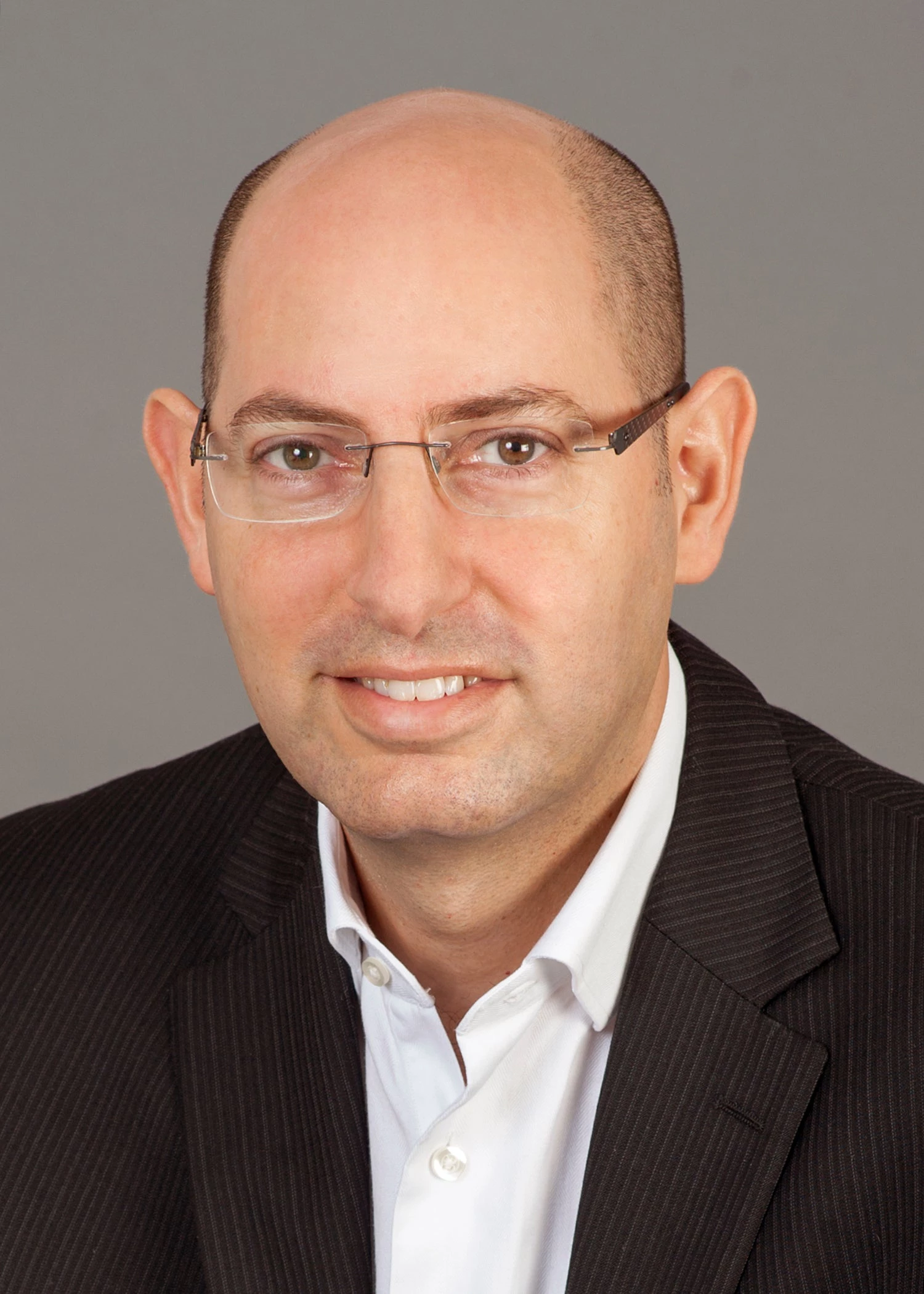 This father and son invested in purchasing a series of tuktuk and motocycles to transport people, food and supplies in the Markazi refugee camp for Yemeni refugees in Obadiah, Djibouti. Photo: Benjamin Herzberg/World Bank
This father and son invested in purchasing a series of tuktuk and motocycles to transport people, food and supplies in the Markazi refugee camp for Yemeni refugees in Obadiah, Djibouti. Photo: Benjamin Herzberg/World Bank
For refugees, building a new life in a host country is filled with challenges. They face difficulties finding jobs, and they face barriers to starting a business. They may find themselves cut off from credit and investment—and from other products and services that are so critically important. All of this limits their ability to build a better livelihood.
But for each of these challenges, the business community has much to give and much to gain. Business can be a source of jobs, provide support for entrepreneurship and make investments that benefit refugees and those hosting them. And they can offer goods and services geared to refugees’ needs. In turn, refugees bring skills, talents, and drive to employment, and as customers they represent revenue for companies.
Refugees can also be good for host communities and countries. When refugees settle in a host country, they mean business: they want to start a new life, be self-sufficient and contribute to their communities . As employees, entrepreneurs, and customers they do just that.
Our work through the Private Sector for Refugees (PS4R) initiative over the past three years has shown how this win-win-win can work. There are four key ways that connecting the business community with refugees pays off all around :
- Employment: Jobs, of course, are one of the greatest needs of refugees. Jerash Holdings is a U.S. company listed on Nasdaq that manufactures and exports sport and outerwear from Jordan. In 2016, Jerash worked with development partners to identify prospective employees, hiring women who fled the war in Syria. The company provides transportation from the Zaatari refugee camp to jobs at its factories near Amman, and continues to employ refugees, who have proven to be reliable and productive workers.
- Entrepreneurship: For many refugees, setting up a business is the first option for rebuilding their lives in their new homes. We’ve seen many refugee entrepreneurs employ themselves, members of their family, and beyond. Business intermediaries and organizations such as chambers of commerce can play a valuable role in helping refugees realize their entrepreneurial potential . The Chamber of Commerce in Bogotá, Colombia, through its Productive Migration program, provides trainings and support for refugees from Venezuela. Since 2019, Productive Migration benefited more than 160 micro and small enterprises, of which 69% increased their sales, 10% maintained them and 73% accessed the financial system to improve their business.
- Investment: Access to capital is critical for refugees looking to build businesses and rebuild lives but they are often seen as too risky to lend to. But in fact, they can be good investments . Kiva, a crowdfunding platform for social investments, has found that refugees repay their loans at similar rates to non-refugees. As a result of success in lending to refugees, Kiva Capital Management – the asset management wing of Kiva.org—launched the Kiva Refugee Investment Fund (KRIF). KRIF, which successfully closed at $32.5m in April 2021, scales lending for displaced populations and fragile countries across the Middle East, East Africa and Latin America.
- Products and Services: Refugees can be valuable customer segments for companies—particularly when products and services are developed that are geared specifically to their needs . Access to credit is one such need but traditional credit scoring methods leave refugees at a disadvantage. Tanda, a Jordan-based financial services platform, is developing an approach for credit scoring that makes it possible to assess lending risk of refugees and others who are typically left out of the financial system, benefiting both the refugees and lending institutions that are ready to see them as customers.
These are just a few encouraging examples of what happens when the private sector thinks of refugees as employees, entrepreneurs, investees and customers.
But businesses often do not know how to engage with refugees on creating new economic opportunities together. PS4R can help fill the knowledge gap by identifying, analyzing, sharing knowledge and expertise, and raising awareness about the many ways companies can engage—and are already engaging—with refugees around the world. PS4R is a partnership that was started by the World Bank, the International Chamber of Commerce (ICC), the UN Refugee Agency (UNHCR), the Confederation of Danish Industry (DI) and the European Investment Bank (EIB). It works closely with a growing network of private, financial, philanthropic, and institutional partners.
The Bank’s involvement in PS4R is part of the Refugee Investment and Matchmaking Platform (RIMP) project. Established in 2018, RIMP's first pilot in Jordan supported 57 business deals leading to 1,930 new jobs for refugees and Jordanians (mostly women). Now renamed the World Bank Private Sector for Refugees (PS4R) Platform, it is operating in other countries, including Djibouti, Iraq, Lebanon and Poland, while advising projects in other regions.
For its part, ICC has also been promoting the integration of refugees into local economies and communities through programs run by its network of national organizations, its involvement in global initiatives to facilitate labor mobility pathways, and most recently through its Centre of Entrepreneurship for Ukraine. National business organizations and member companies in all regions have been supporting, and continue to support, refugees by providing economic opportunities or facilitating access to essential products and services.
All in all, the main lesson learned from three years of PS4R work is that connecting refugees and the business community pays off all around . The key is to make sure those connections happen.



Join the Conversation